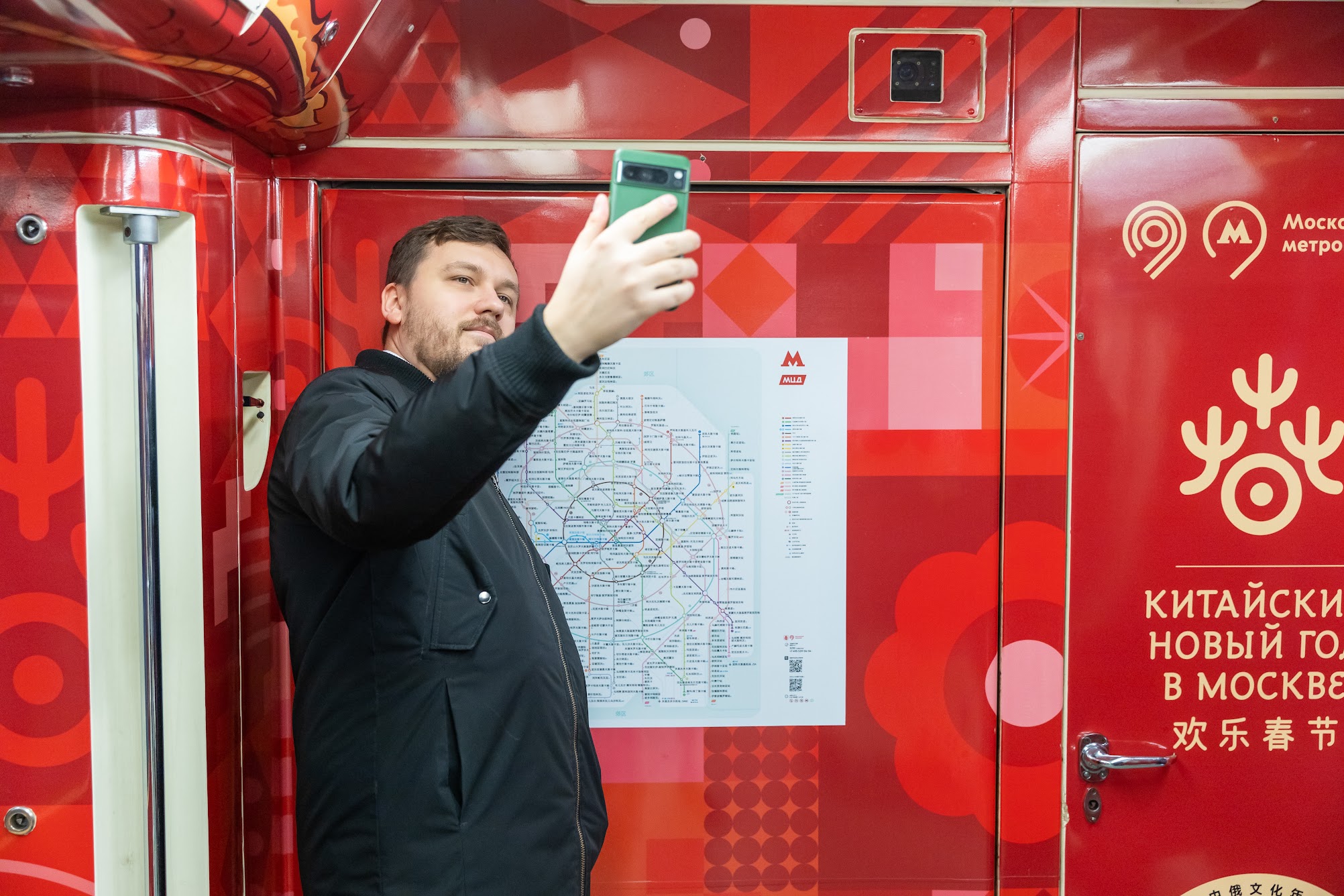Source: Moscow Metro
The Moscow Metro has unveiled a new metro map in Chinese, making navigation easier for tourists from China. The names of metro stations, MCC, MCD, and other key transport locations were translated in collaboration with native speakers, ensuring linguistic accuracy and adherence to Chinese grammar rules.

To help Chinese visitors better understand station announcements, the names have been phonetically adapted to resemble their Russian counterparts. For example:
- 米金诺 (Mǐ jīn nuò / Mi din nuo) — sounds like Mitino station
- 珀梁卡 (Pò liáng kǎ / Po lyang ka) — corresponds to Polyanka station
The translations were carried out using the Palladium System, a specialized method for transcribing Chinese words into Russian.
The unique Chinese-language metro map has been placed in the first and last carriages of the Chinese New Year themed train, currently operating on the Line 3. Passengers can also get a mini version of the map for free at over 30 “Live Communication” information desks, while an electronic version is available for download.
Moscow welcomes many tourists from China. To make their travel around the city more convenient, we have developed a Chinese-language metro map that includes translations for all metro, MCC, and MCD stations, as well as key transport hubs like airports and railway stations. Improving passenger comfort remains our priority, as per the initiative of Mayor Sergey Sobyanin, — said Maksim Liksutov, Deputy Mayor of Moscow for Transport.
Moscow also expands eco-Friendly transport, inspired by China’s experience
Moscow’s surface transport system is aligning with international trends by integrating eco-friendly electric buses, following the example of China. Last year, innovative electric bus routes were introduced for the first time in 15 districts across the city.
Since 2022, Moscow has been receiving electric buses with electric-powered cabin heating, and in 2024, they arrived in an updated design. Each electric bus reduces CO₂ emissions by over 60 tons per year. Currently, 11 Mosgortrans depots ensure the operation of electric bus routes, supported by around 350 charging stations installed across the city.
Moscow is also actively exchanging expertise with Chinese colleagues. As part of international cooperation, last autumn, Mosgortrans hosted a delegation from the Hebei Transport Vocational Technical Institute (HTVTI, China) at the Mitino electric bus depot. During the visit, Chinese specialists were given a firsthand look at the operations and unique features of Moscow’s electric public transport system.
Collaboration with Chinese colleagues not only allows us to adopt best practices in transport technology and urban mobility but also to share our own innovations, contributing to the development of eco-friendly transportation in both China and Russia. Thanks to such international partnerships, Moscow is confidently moving towards its goal of creating a sustainable transport system that meets the challenges of the future.